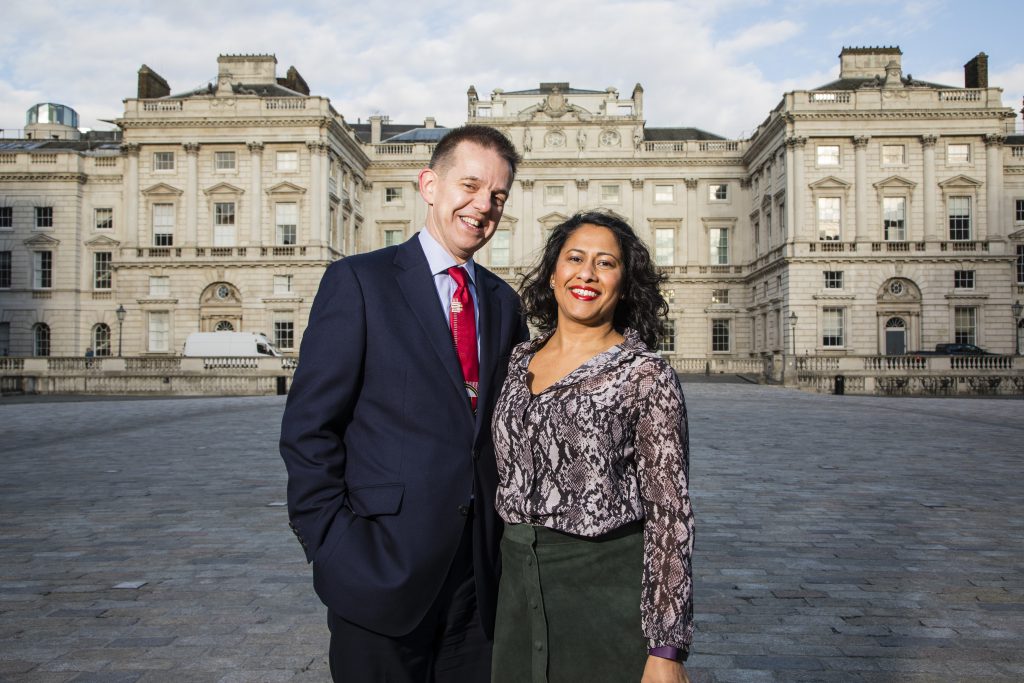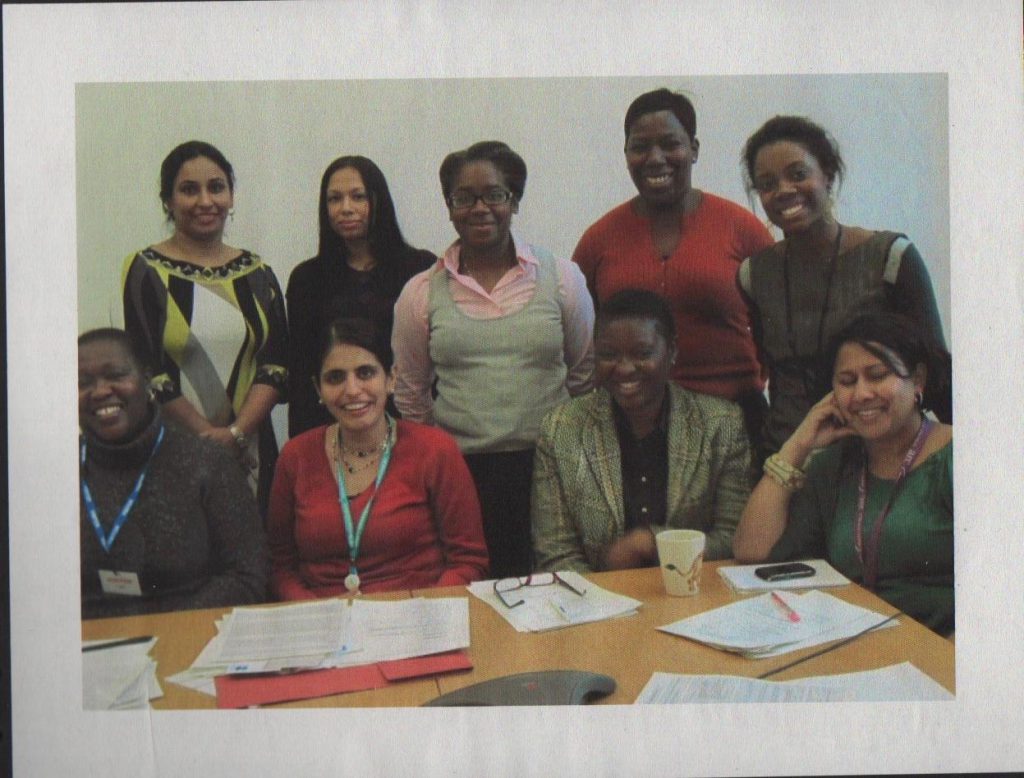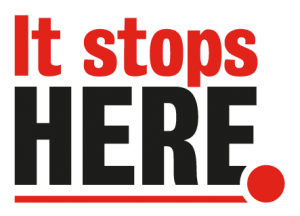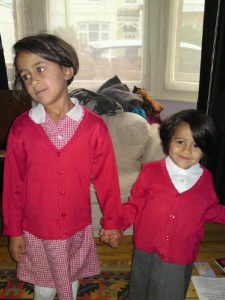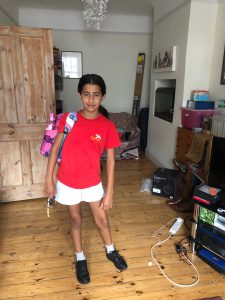To launch the Parents & Carers Network at King’s, Sarah Guerra has republished an article she wrote with her husband, Jon, eight years ago on the logistical roller coaster of co-parenting and career management:
SARAH: I work three days a week: the other two I have off – lunching, drinking coffee, doing my nails! Ha!
Yesterday, awoke at 6:30 to the sounds of pouring rain and raging wind. Threw on clothes, dashed around in the peace and quiet before the children got up – first load into the washing machine. Assemble lunches for the two older (step-)children (Martha, 15, and Flora, 13) – set them out so they practically trip over them and ‘cant’forget them. Got Kaela, 4, ready for nursery. Suggest Jon (partner) drop M & F off as the weather is so horrid.
Then get youngest, Lyra (18 months) up and breakfasted whilst whizzing up some soup and a chicken pie. Oh, what’s the time? 9am – rang the garage to check when a replacement car is arriving – ours needs repairing. Eventually, I discover it will be after 2pm. Then I luxuriate in my ten minutes of peace before Lyra and I are off swimming. It is now a beautiful spring day. Post swimming, shovel lunch into Lyra and race to collect Kaela at 1pm. Now (of course) it’s pouring – so decision to wear sandals and no coat is regretted!
Get home, pop Lyra into bed. Have given up filling this time with wholesome activities – so settle Kaela at TV while I sort the laundry and reload with the third and (please?) final lot! Swallow some soup while supervising the making of daddy’s birthday card.
2:30pm: off to speech therapy (a helpful mum arrives with her two children to watch Lyra). Kaela loves these sessions and though it’s of real benefit, it is yet one more thing to factor into the already mad schedule. As luck would have news of the replacement car’s availability arrives in the middle of the session. To leave Kaela, I have to scribble a written consent and dash back Starsky and Hutch style to swap cars. I retrieve Kaela and return home – it’s our turn to host ‘tea group’, which began as four or five stunned mothers and newborns and is now the utter mayhem of five mothers and nine assorted children ranging from one to four and a half.
I get tea on the table for all the children at 4.45pm – and have to say am very pleased when my chicken pie is wolfed down by everyone, apart, of course, from Kaela – who (as children do) has developed a bug in minutes and is shortly asleep! So, I despatch all the invaders and dash around tidying with my shadow Lyra. Have definite pangs of guilt over my conflicted emotions – if Kaela is ill, my week will be spoilt. I’m supposed to be at the Women’s TUC for two and a half days, which I have been really looking forward to, and that rests on Kaela going to nursery; if she’s unwell she can’t go. This spirals into a panic about what byzantine arrangements might be needed and weighing up how evil it would be of me to go when she is ill?
Martha and Flora arrive home – starving. In goes another chicken pie, meanwhile Kaela wakes, eats some toast and an unfeasible amount of jelly. I’m relieved, our schedule will not be disrupted.
Get two ‘babies’ in bed by 7.30, organise other’s homework, lunches, school trip forms etc, gobble chicken pie with my husband, then do the supermarket shop online, make some desperate attempts to manage our finances – shifting money from one place to another – but we are really in a deckchairs-on-the-Titanic situation. Unload that last load of washing. Then, in the vain hope of switching off, settle down on the sofa! But no, my mother (our unpaid childminder for tomorrow) decides now is the time to estate plan. It really brings home how effective the anti-IHT lobby is: my mum is so worried, and seems little reassured by my ‘you’re not rich enough to worry about it’ line.
Finally, at 9.30, I slump on the sofa and force Jon to watch Delia use various forms of frozen potato to conjure up “good meals”.
JON: I’m part-time too – four days a week. I spend the other day reading the paper and going to the pub… What? Oh all right then, not really: I do the same sort of thing as Sarah – but in a manly way (that means I do less of it).
Typically, up at 6.30ish, unload the dishwasher. Then I wash all the dishes (must get a new dishwasher). Kaela is up around 7.00, demanding to watch some highly educational TV?
Martha and Flora come down 7.20ish – head off to school, might even take coats if the snow is more than a foot deep.
Under Kaela’s strict guidance, I select and bring down clothes, facilitating dressing whilst glued to the screen – pause viewing (aren’t hard discs wonderful?), and force her upstairs to clean teeth. Get Lyra up and dressed to take Kaela to nursery. If things go well (manageable nappy change; no last-minute, 20-minute session on the loo – for Kaela, not me), I can drop Kaela off by 8.00 and be back for breakfast shortly.
Then I consult ‘The List’. The importance of this document in the harmony of our household cannot be overstated. It tells me jobs that I ought to know need doing and the events of the day that I ought to remember. Needless to say, this is written by Sarah, who after years of waiting for the fog to lift from my mind about knowing what’s going on in the house, knows life is easier if she spells it out to me. So, I’ll then maybe empty the washing machine before spending some time with Lyra. It’s possible that Sky Sports might be on while we play – what can I do? It’s Lyra’s favourite!
Then I might take Lyra to music and/or push her through a couple of shops (she’s in a pushchair – it’s not abuse). Home for lunch, which she generally wolfs down although a full body bib is required. Then up to nursery and back to get Lyra in bed.
Kaela watches more telly or does some drawing or a puzzle while I do more from the list, including making tea because time gets compressed later in the afternoon. Then I join Kaela, trying to bring some order to her play. When I’ve completed my Lego hospital with fully-functioning operating theatre I realise she went to do something else a while ago and it’s time to get Lyra up and head to Kaela’s swimming lesson.
Pre-swimming they go in the playzone – cages with padded bars, slides and lots of plastic balls. Lyra loves it but is a bit small, so I end up having to squeeze through gaps too tight for a man of my dignity to rescue her at the bottom of the slide; at which point she goes back round and ends up stuck at the bottom again. If I’m quick getting out between each round I can sit down for as much as 30 seconds at a time. Martha and Flora arrive to do something healthy – swimming or gym – although I suspect that, just as school seems to be a place to chat with their friends, swimming is chatting in water and gym is chatting on treadmill. On to Kaela’s lesson. Lyra objects violently as I strap her into the pushchair to help Kaela into her costume. Getting a swimming cap on over long hair is a skill I’ve picked up recently!
Kaela has become firmly opposed to going in the boy’s changing rooms, so to avoid arguments I let Martha and Flora get her showered. Between 5:30 and 6:15, we go home for tea. As Sarah has ensured I’m very organised, tea is ready and two, three, four, five or six of us sit down to eat, depending on who’s home. Time for Lyra’s bath – Sarah might get home and the pace considerably increase – we get them into bed and sort the debris of the day, and the older girls’ and maybe have a chat. But I’ve opened a bottle of beer by now, so everything’s good. It’s back to work the next day. I can’t wait!

